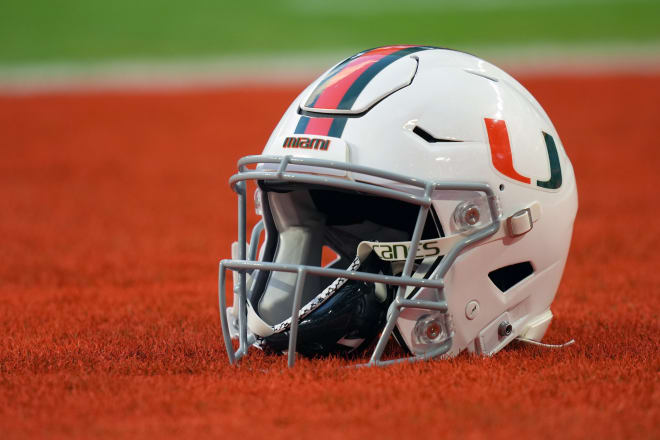ANALYSIS: How new NCAA rules will affect ... and not affect UM

The NCAA tweeted out a couple of major rule changes today.
The first? DI football initial counter limits will be removed for the next two years, meaning programs can sign an unlimited amount of recruits in the classes of 2023 and 2024 ... as long as a program's final roster remains at the 85 or under limit.
The other major change is that, per the NCAA's tweet, "Division I Council relaxes restrictions for FBS football conference championship games; FBS conferences to determine their championship game participants." Translation: Divisions are likely soon to be a thing of the past, as soon as this coming season for some conferences. In fact, the Pac-12 announced shortly after the NCAA's update that it will use a new format in which the two teams with the best winning percentage will play in the conference title game (as opposed to the Pac-12 South and North division leaders playing).
That is likely to be true of the ACC as well, possibly for as soon as this coming season.
So how do these two rule changes affect Miami?
Well, let's start with the conference issue first.
Miami plays in the perceived weaker of the two divisions, the Coastal, which includes doormat teams Duke and Georgia Tech as well as programs that are expected to struggle this year/be middle-of-the-road like UNC, Virginia and Virginia Tech. It was widely perceived that the other two Coastal teams, Miami and Pitt (ranked No. 15 in late April preseason ranking by ESPN), are the cream of the division.
The Atlantic, though, has perennial ACC frontrunner Clemson (ranked No. 11 in preseason by ESPN) as well as a really good NC State team (ranked No. 7 in preseason by ESPN) and Wake Forest (ranked No. 17 in preseason by ESPN).
So this probably would not be good news for Miami in terms of the program reaching the ACC title game ... if the division format is eliminated for this coming season.
On paper, it would make Clemson and NC State early favorites to represent the conference in Charlotte ... with Wake Forest, Pitt and Miami battling to be in the conversation.
Prior to this it .. again, on paper ... was likely going to be either the Panthers or Canes in the title game. So the odds would significantly decrease of Miami making it there for the second time.
As for the 25 limit being lifted the next two years?
While that helps programs that are older or that will have a lot of attrition in 2023 and 2024, Miami's not expected to be one of those teams. As things stand right now the Canes will have 32 players listed as freshmen and 29 sophomores this coming season. That's 61 players that would be returning as either sophomores or juniors next year, and then juniors and seniors the following season. We know there will be attrition, of course, but there would have to be a huge amount to surpass the usual 25 signees allowed plus seven "free" transfers or the prior system. As of now, Miami would be able to fit an average class of 12 players (including freshmen and transfers) in each of the next two classes without players leaving early. Even with transfers out and some turning pro early it's a tall order to think UM would see more than 40 players leave in the next two years (the break even number including 25 recruits and 7 transfers per year).
What would help the Canes tremendously?
Lifting or raising that 85 roster cap. But there is no word on if that will happen this year.
So the bottom line is the NCAA roster changes today don't really help the Canes much compared to teams that might have older rosters or guys leaving in droves due to coaching changes or the like.
And schedule-wise it can hurt UM's chances of an ACC title game berth ... and could alter the Canes' conference schedule that would otherwise annually include pretty easy wins against the Dukes and Georgia Techs of the world.
There's talk that the league could go to a 3-5-5 system that would give each team three annual opponents and the other 10 opponents split into two groups that would rotate every other year.
Or that the ACC will simply put the two teams with the best ACC records in the title game this year, using generic conference tiebreakers to decide it.
Either way, that's not going to do UM any favors.
